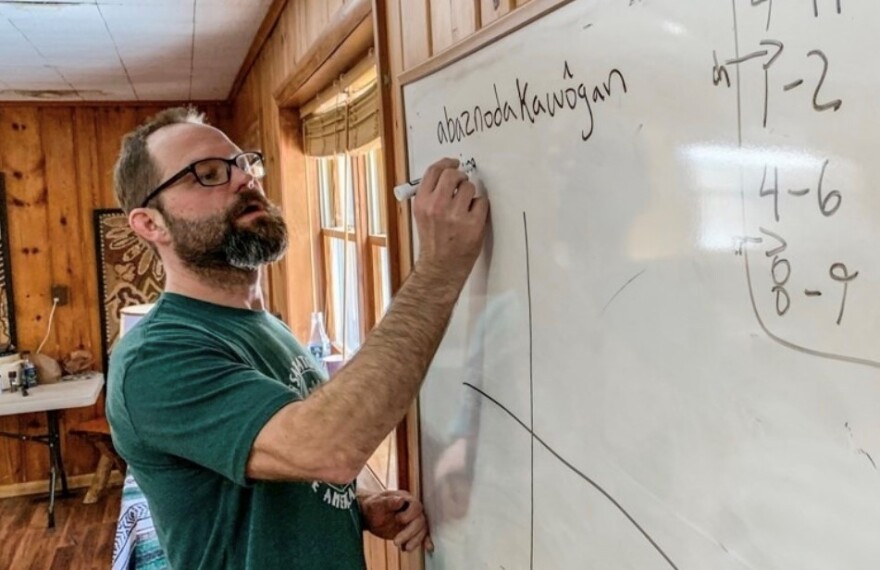Middlebury College is expanding its language school offerings this summer with a pilot School of Abenaki. The two-week-long immersion program will be taught by Jesse Bowman Bruchac, a member of the Nulhegan Abenaki and a teacher of the Abenaki language for more than 25 years.
"To have a program, like has been put together at Middlebury, come to us with an interest in giving us a place to focus and use some of the strategies they use, was incredible," Bruchac said. "It seems like everybody who I've worked with there is very, very excited to be able to offer the language of the land for the first time."
Learn Abenaki words and phrases, such as "Kwawaldam," on Bruchac's Youtube channel.
The hope, he said, is to help revitalize the Abenaki language. Western Abenaki is listed as "extinct" by UNESCO, however there are a few fluent speakers left according to Bruchac. He also noted there are more people with varying levels of fluency, or fluency on certain topics, such as basket making.
"My goal is to tap into the community and use everybody's strengths and draw them out," he said. "I remember an expression which was spoken about across the continent years ago: that the Turtle, which is Turtle Island, the homeland of Native people here, had been broken — its shell — and that each of us have a piece to help bring it all back together."
Bruchac said he has been in touch with Abenaki people from across the country and in Canada who want to return and participate in the School of Abenaki. He expects about 20 students to take part in this summer's session on Middlebury College's campus. They'll all take the "Language Pledge," a formal commitment to only speak Abenaki for the entire session.
"I think there's nothing more important as far as connecting us to this place than to understand its original people," Bruchac said. Learning the language, he added, can connect and root people to Pitawbagok, or the Lake Champlain area, both its past and its present, which includes the presence and contributions of Abenaki people.
"The language has always been more than just the language to me," Bruchac said. "I don't try and speak Abenaki to have new words, I try and speak Abenaki to understand the culture and my connection to it."
"I don't try and speak Abenaki to have new words, I try and speak Abenaki to understand the culture and my connection to it." — Jesse Bowman Bruchac
As Bruchac leads the Middlebury Language Schools course, he said students will learn songs, dances and traditional stories. He'll also be posting on Youtube 100 essential Abenaki words and phrases in advance of the session, with both spelling and pronounciation, such as "T8ni kdidamen ni Iglismoniwi?" or, "How do you say that in English?"
As they immerse themselves in Abenaki language and culture, Bruchac knows the class will run into English words for which there is no translation.
"We may have to come up with new words as a community," he said. "We may need to say, 'Hey, how should we say internet?' Because our fluent speakers weren't speaking about that 40 years ago."
Explore the Abenaki language on Bruchac's website, here.
That's where "Abenglish" comes in.
"A good part of our conversations have words that are half and half, and sentences that are the same way," Bruchac said. "That's how it's going to happen."





